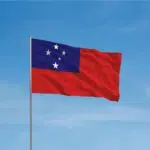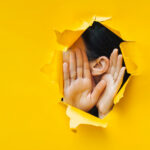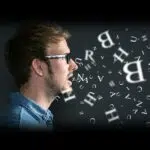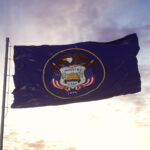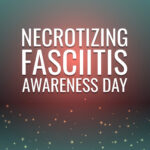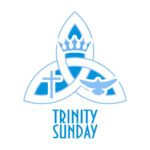End Better Speech and Hearing Month on a high note but at a lower volume — observe National Save Your Hearing Day, which is celebrated each year on May 31. While it is unclear who founded this particular event, what these mysterious people wanted is crystal clear — to protect hearing and stave off hearing loss at all costs.
History of National Save Your Hearing Day
Records of hearing loss have been around since ancient times. An Egyptian mummy, PUM II, showed evidence of having a perforated eardrum, which signals hearing loss. The ancient Greeks do not have a great history for people afflicted with hearing loss; records indicate such people were shunned by the general population. Surprisingly, the Greek philosopher Aristotle reportedly called them ‘barbarians’ as they (obviously) could not speak properly. The earliest record of hearing loss, however, is from ancient Egypt, in which an ancient piece of papyrus even offers a remedy for hearing loss. These guys, unlike the ancient Greeks, were taught to treat disabled individuals with respect, including the deaf. Other civilizations who treated the deaf with respect were the Romans. A congenitally deaf Roman child in Britain was given a special burial in a coffin made of stone.
Sign language began to be used early on, as evidenced by the writings of the Athenian philosopher Plato. The earliest mention of a hearing device, on the other hand, comes from the writings of an Italian scholar who described an instrument that could amplify sounds.
In later years, whatever the world (and America) learned about hearing protection was spurred on by military needs. Both World Wars saw the development of multiple new inventions in hearing aid, from earplugs and ear flaps (to protect hearing), to earmuffs. As with most inventions, these earmuffs also underwent a series of transformations to become the fluffy ear protectors they are today. The ear cushions were initially very stiff and needed a strong headband to hold them, causing them to be described as having a ‘vice-like’ grip.
National Save Your Hearing Day timeline
A 45,000–35,000-year-old Neanderthal skeleton shows signs of extra growth in his ears, indicating hearing loss.
At an archaeological site in Iraq, called the Shanidar Cave, many 10,000-year-old skeletons show signs of having a bony growth in their ears, which can cause hearing problems.
The Ebers Papyrus (a medical papyrus of herbal knowledge) gives a remedy for ‘Ear-That-Hears-Badly’ — this cure is an injection of olive oil, red lead, ant eggs, bat wings, and goat urine into the ears.
Monks in Burgundy use hand signals, which would come to be called Cluniac sign language, to communicate without speaking and keep to their strict vow of silence.
A Spanish Benedictine monk, Pedro Ponce de León, starts the first school for the deaf in San Salvador Monastery in Oña, Spain — they use a manual alphabet (fingerspelling) to communicate.
Italian scholar Giambattista della Porta writes about a horn-like instrument used to increase sound, which is modeled after the ears of animals.
One of Italian Galileo Galilei’s students, Paolo Aproino, creates the first ear trumpet.
The earplug is patented.
Invented to protect the ears of sailors and soldiers, canal caps could be attached to an adjustable headband.
As jet engines become louder and louder, newer and better versions of earmuffs are developed until we see non-linear electric systems being incorporated into them.
National Save Your Hearing Day FAQs
What month is National Protect Your Hearing Month?
National Protect Your Hearing Month is in October.
What is Save Your Hearing Day?
It is very important to preserve our hearing, and National Save Your Hearing Day recognizes this fact. Each May 31, we observe this day to raise awareness about hearing loss, and how to avoid it the best we can.
What is Better Hearing and Speech Month?
It is a time to learn and spread awareness about communication disorders and the treatment available for them. This month is observed yearly in May. Read more about it here: BETTER SPEECH AND HEARING MONTH – May 2021
How To Celebrate National Save Your Hearing Day
Learn how to protect your hearing
This day is best celebrated in a peaceful and quiet(er) environment. Some ways to protect your hearing include staying away from loud noises and giving your ears a break now and then. You can also wear hearing protection like earmuffs whenever possible to ensure you are not constantly exposed to loud noises.
Test your hearing
Some signs that your ears might need a check-up include hearing a ringing sound in your ears after noisy events, if noise physically hurts your ears, if you cannot hear what people nearby are saying, or if you need to raise your voice while talking to others. Whether you show signs of hearing loss or not, it is a good idea to get your hearing checked out by a physician. Some clinics and physicians even run free ear screenings or other campaigns to promote this day so keep an eye out for this.
Go on a hearing detox
We don't mean you should wear noise-canceling headphones the whole day. Simply rest your ears for about an hour a day, avoiding any loud noises. By loud noises, we mean listening to music on your headphones! Increase this to longer than an hour if you think you can manage to go without music for a while.
5 Interesting Facts About Hearing Protection
The 60:60 rule
This rule says people should listen to music at 60% of volume capacity for less than 60 minutes a day.
There’s a limit to noise exposure
The U.S. Occupational Safety and Health Administration recommends no more than eight hours per day of exposure to noise at 90 dBA (in other words, using headphones at a normal volume).
Our ears need to recover too
If you have to use headphones, over-the-ear ones are better — avoid earbuds as they sit directly next to the eardrum.
Over-the-ear headphones are better
If you have to use headphones, over-the-ear ones are better — avoid earbuds as they sit directly next to the eardrum.
Keep your ears dry
Wet ears can cause infections that are dangerous to your hearing, so always keeping them dry is important.
Why We Love National Save Your Hearing Day
It normalizes hearing problems
Hearing loss can be prevented or, at the very least, treated. Learning more about our hearing teaches us how easy it is to abuse our ears and how quickly we can ruin our hearing capacity. It also makes us more sympathetic towards those with hearing loss.
It protects ear health
Simple and small tweaks to our lifestyle can improve our hearing health. Knowing this, and the various tips this day provides to better our hearing health is why we wholeheartedly support it.
It raises awareness about care
This day, and the subsequent events around it, bring attention to an often neglected (and abused) part of our well-being — our hearing. We understand more and can make simple tweaks to our lifestyle to adopt better hearing habits. We cannot be thankful enough to be reminded that our hearing needs some TLC, what about you?
National Save Your Hearing Day dates
| Year | Date | Day |
|---|---|---|
| 2026 | May 31 | Sunday |
| 2027 | May 31 | Monday |
| 2028 | May 31 | Wednesday |
| 2029 | May 31 | Thursday |
| 2030 | May 31 | Friday |






